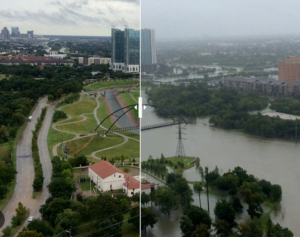In our world, the nature of change varies widely, from the subtle and slow to the swift and disruptive. This duality of change—embodied in the steady rise of sea levels and the sudden fury of hurricanes—serves as a powerful metaphor for how we perceive and respond to challenges in our lives and society. The contrast between the immediate, all-hands-on-deck response elicited by hurricanes and the gradual, often overlooked threat of rising sea levels offers a compelling lens through which to view our collective and individual responses to change.
Hurricanes capture our attention with their immediate and visible impact. They disrupt lives, economies, and landscapes in a matter of hours or days. The approach of a hurricane triggers a flurry of activity: news outlets provide round-the-clock coverage, while local and federal agencies spring into action to mitigate the impact and aid in recovery efforts. This instantaneous mobilization underscores a societal ability to recognize and respond to acute challenges with urgency and determination.
Conversely, the slow but steady rise of sea levels represents a change of a different sort—a gradual process that lacks the dramatic flair of a hurricane but poses a significant long-term threat. This creeping change, much like the proverbial frog in boiling water, often fails to provoke the same immediate, concerted action. The incremental nature of rising sea levels, with its gradual encroachment on coastlines and slow alteration of ecosystems, does not shock us into action. Instead, it allows for complacency and delay, even as the long-term effects promise to be as devastating, if not more so, than those of a hurricane.
This dichotomy between the urgent and the incremental illustrates a broader human tendency: we are wired to respond to immediate threats with energy and focus, yet we often neglect slow-moving changes, even when they have the potential to cause greater harm. This selective attention is evident not just in environmental issues but in various aspects of society, from public health to technological disruption.
Recognizing both types of change—the little drops and the heavy downpour—is crucial. While it’s natural to react to immediate crises with urgency, we must also learn to pay attention to the slow, subtle shifts that, over time, can have profound consequences. Cultivating an awareness of these gradual changes requires a shift in perspective, encouraging long-term thinking and proactive planning rather than reactive responses.
In the end, whether change comes in the form of a sudden deluge or a slow trickle, its effects are invariably significant. The challenge lies in our ability to broaden our vision, to anticipate and prepare for both the hurricanes and the rising seas of our world. By doing so, we can safeguard our future, ensuring resilience and adaptability in the face of both rapid and gradual transformations.

